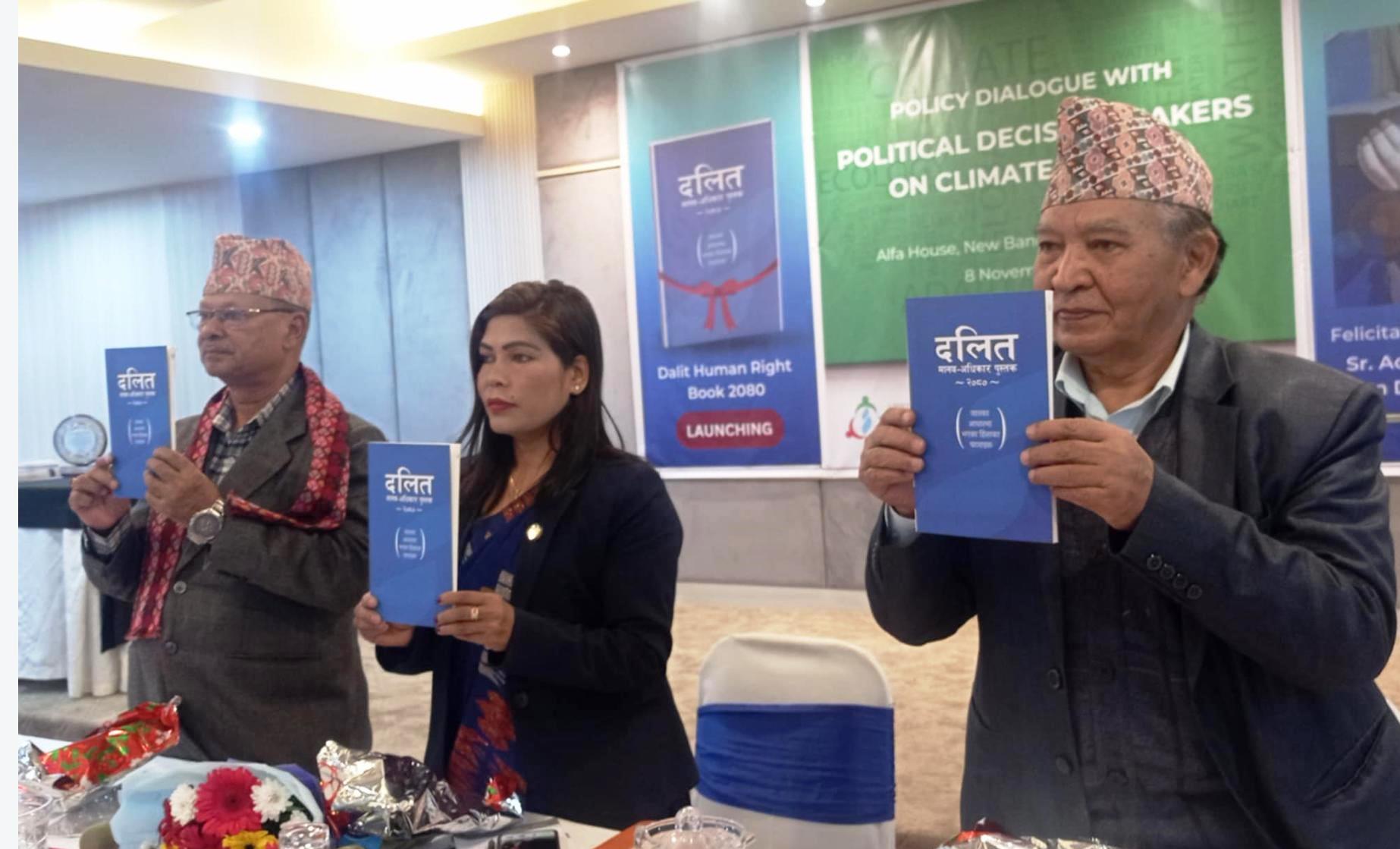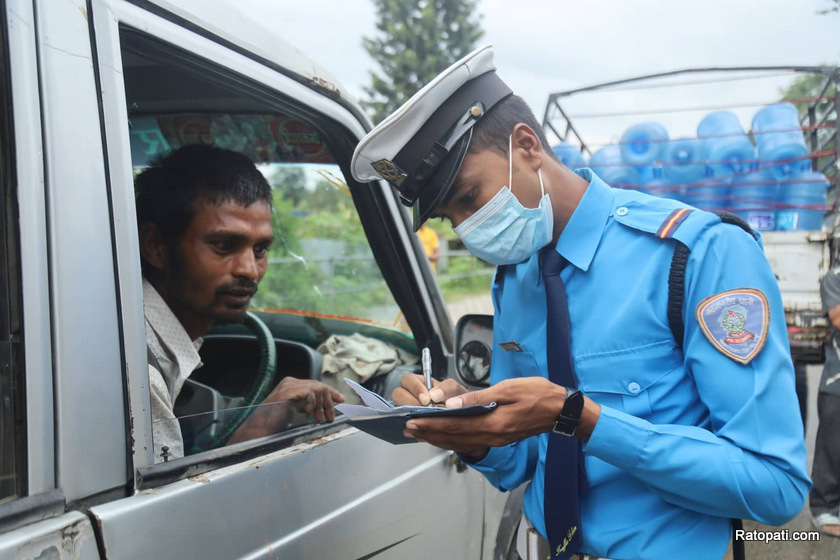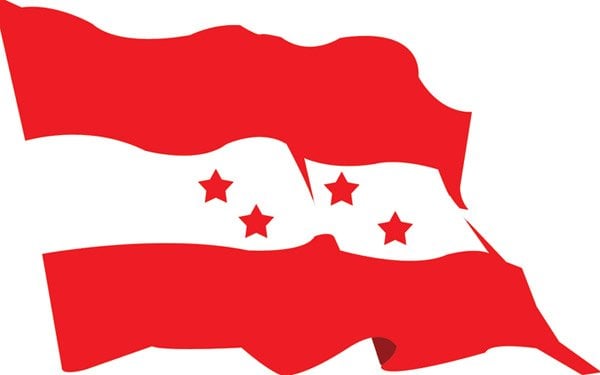Immorality and Nepalese politics
 \
\
By Deepak Joshi Pokhrel
It is often said that everything is possible in Nepali politics. This adage is not a sort of praise but a sharp criticism from the perspective of morality. Over the years, morality has been a big concern among our politicians. The biggest irony is that our politicians, exceptions apart, have been devoid of morality. Consequently, the people are losing faith in them which does not bode well for a fledgling democracy like ours.
So what is morality? According to the Oxford Dictionary, morality is a system of values, normative rules or principles according to which intentions are considered good or bad, right or wrong. At its core, morality functions as an ethical compass guiding people through decisions and helping mould laws and social standards. But when it comes to political aspects, the politicians often give a short shrift to morality giving the impression that they are not bothered about morality.
Immorality among politicians is very pervasive in this part of the planet. The politicians are not accountable which is mainly due to a dearth of morality. Irrespective of parties, politicians are often seen making lofty and airy promises. When questions are raised over the promise they made to the people, our politicians turn a deaf ear to their concerns. This clearly validates the old axiom “Power tends to corrupt and absolute power corrupts absolutely”.
Likewise, it is also common to hear the question of morality in governance. Whenever any serious investigation issue is raised in parliament, the lawmakers project themselves as they are very serious about the issue. They even commit to stepping down if they fail to take issue with honesty, vigor and fervor. But even after they fail to live up to the people’s expectations, they do not even bother to reach out to people seeking an apology let alone stepping down on moral ground.
Just a few years ago, our politicians, KP Oli and Pushpakamal Dahal, in the wake of growing political instability, announced the merger of their parties. The alliance, according to them, would ensure political instability paving the avenues for lasting peace and rapid economic development. A written agreement also decided to lead the government on a rotational basis. However, the question at that time was whether both leaders would abide by their accord on moral grounds. With time, Oli dissolved the parliament instead of handing over the premiership to Dahal as per their agreement. This is a classic example of immorality among our politicians.
While the country was still coping with political instability, a high-voltage scam rocked the nation. The then communication minister Gokul Prasad Baskota was allegedly caught on audio negotiating for Rs 700 million with an agent of a Swiss company. The minister stepped down to facilitate the investigation. The Commission for Investigation on Abuse of Authority, the investigating body, ended up in a state of dormancy leading to the conclusion that was a little unexpected.
Even the young generation of politicians does not fare better in terms of morality in Nepal. To say, morality is completely different inside and outside the political circle. The politicians tend to change the color like a chameleon changes its color. Rabi Lamichhane, a journalist turned politician, ignited the hope of the people after he undertook some commendable initiatives. Soon after, he was accused of mismanagement of the cooperative fund. This irked people who were pinning high hopes on him. Lamichhane is also morally corrupt.
The tentacles of immorality have griped every sector of the country. In December 2023, two youths were killed in police firing during a demonstration by Korean language test candidates in Balkumari, Kathmandu. The candidates clashed with police demanding they be allowed to appear for language test. The then minister for infrastructure and transport, Prakash Jwala, was seen as responsible. There was widespread criticism over the police firing while the minister seemed unruffled. Perhaps he had no idea about what is morality and he should resigned on moral ground. What was even worse was the fact that the then-prime minister didn’t dare to sack him either. This is yet another example of ministers lacking morality.
However, this is not to say that we do not have morally vibrant prime ministers in the country. We do. But they are outnumbered by the morally corrupt ones. There have been instances when our prime minister had shown morality even when the Singha Durbar was in flames. For instance, when the fire broke out in Singha Durbar on July 17, 1973, the then-prime minister Kirti Nidhi Bista took moral responsibility and four days later he resigned on moral grounds. His resignation was purely on moral grounds and without external pressure. Such humbleness is very rare among our present-day politicians for whom resignation appears to be no different than a game of musical chairs.
At present, the lack of morality among politicians in Nepalese politics has given rise to an astonishing phenomenon. The politicians are known by their mocking name which they earn mainly due to a dearth of morality. As things stand now, we do not need to mention their names, just their mocking name is sufficient. For instance, if we say Goat, people will know which politician they are referring to. Similarly, “70 crores”, “Baa”, “Bhauju”, “Bhaaru Ram” are some prominent mocking names of our politicians. Everyone knows very well who these nicknames denote.
We criticize our politicians not for their inaction and insensitiveness towards the needs and aspirations of the people but for lacking morality. If our politicians understand the significance of morality and abide by it, we will able to defend and strengthen our fledgling democracy.
Source : https://www.peoplesreview.com.np/2024/10/15/immorality-and-nepalese-politics/






